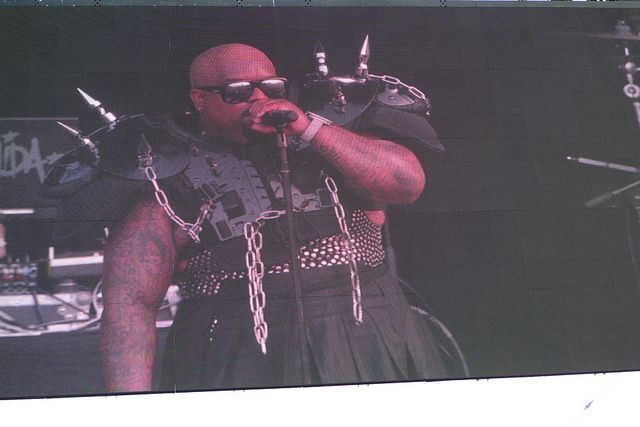CeeLo Green Pleads Not Guilty To Slipping Ecstasy Into Woman’s Drink: Is Ecstasy The New ‘Roofie’?

CeeLo Green, singer and The Voice coach, appeared in court Monday where he stood to face charges of drug possession and sexual assault for an incident in which a woman accused him of giving her ecstasy and engaging in non-consensual sex with her last year. Prosecutors dropped the sexual assault charge due to insufficient evidence, but Green, 38, is still being charged with felony furnishing of ecstasy to which he pleaded not guilty.
According to the Los Angeles Times, the charges stem from a July 2012 incident in which a 33-year-old woman accused Green, born Thomas DeCarlo Callaway, of placing ecstasy in her drink at a restaurant called Wokcano. The woman told police that she woke up naked in a hotel bed with the singer a few hours later.
Sources close to the investigation say that Green disclosed that he gave the woman ecstasy in a phone conversation after the incident. But prosecutors still said they did not have enough evidence to charge him with rape of an intoxicated person. Green’s attorney, Blair Berk, said that the singer cooperated with the investigation because he knew that the rape accusations were unfounded.
"Mr. Green encouraged a full and complete investigation of those claims, and he was confident once conducted, he would be cleared of having any wrongful intent and it would be established that any relations were consensual," Berk said. "CeeLo had faith that if the true facts were known, the district attorney would reject those charges."
"As it relates to the one charge of furnishing or sharing Ecstasy, Mr. Green will responsibly address that matter in a court of law, but not comment on it further out of respect for the process,” said Berk.
Ecstasy, also known as MDMA and “Molly,” has become increasingly popular as a party drug recently. But is the drug’s popularity leading to it becoming the new frontier in date rape?
Traditionally, the term “date rape drug” has been applied to powerful sedatives like gamma hydroxybutyrate (GHB) and Rohypnol (“roofie”). Those drugs have long been described as date rape drugs because they can render a person unconscious, making them unable to resist and/or remember being sexually assaulted. Ecstasy, on the other hand, makes users less inhibited and has “empathy-generating and sensual effects.” So, while the person given the ecstasy may not be unconscious, they still don’t, in some cases, have the mental capacity while under the influence of the drug to give consent to sexual intercourse.
Green’s case is part of a burgeoning area in the prosecution of drug-facilitated assault. Law enforcement officials are grappling with convicting people for furnishing the ecstasy on dates and prior to sexual interactions. In the incident with Green, it seems officials erred on the side of caution by deciding to drop the rape charge.
Green is still set to defend himself against felony furnishing of ecstasy charges. He is due back in court Nov. 20.
Source: Jansen KL, Theron L. Ecstasy (MDMA), methamphetamine, and date rape (drug-facilitated sexual assault): a consideration of the issues. Journal of Psychoactive Drugs. 2006.



























